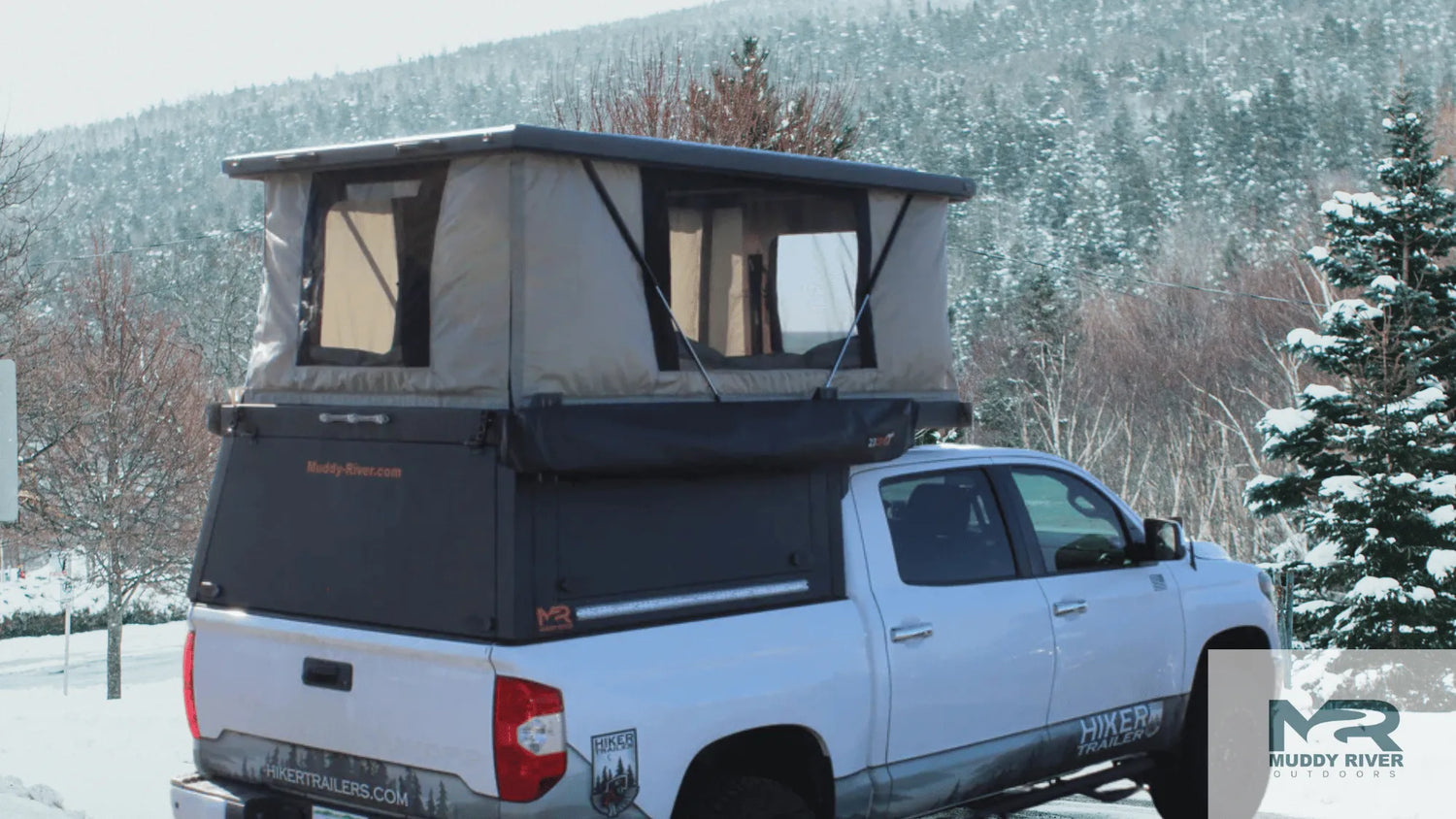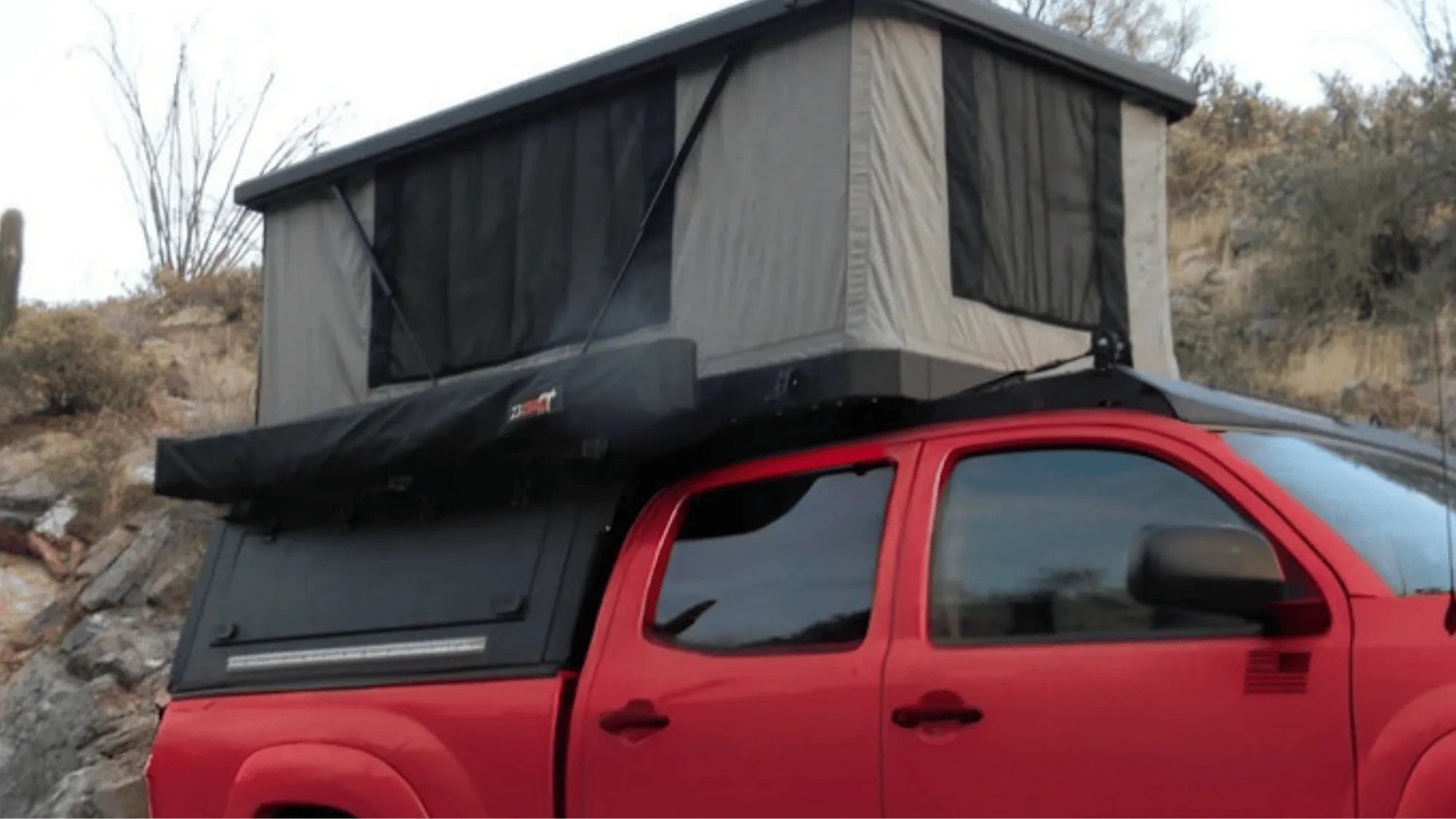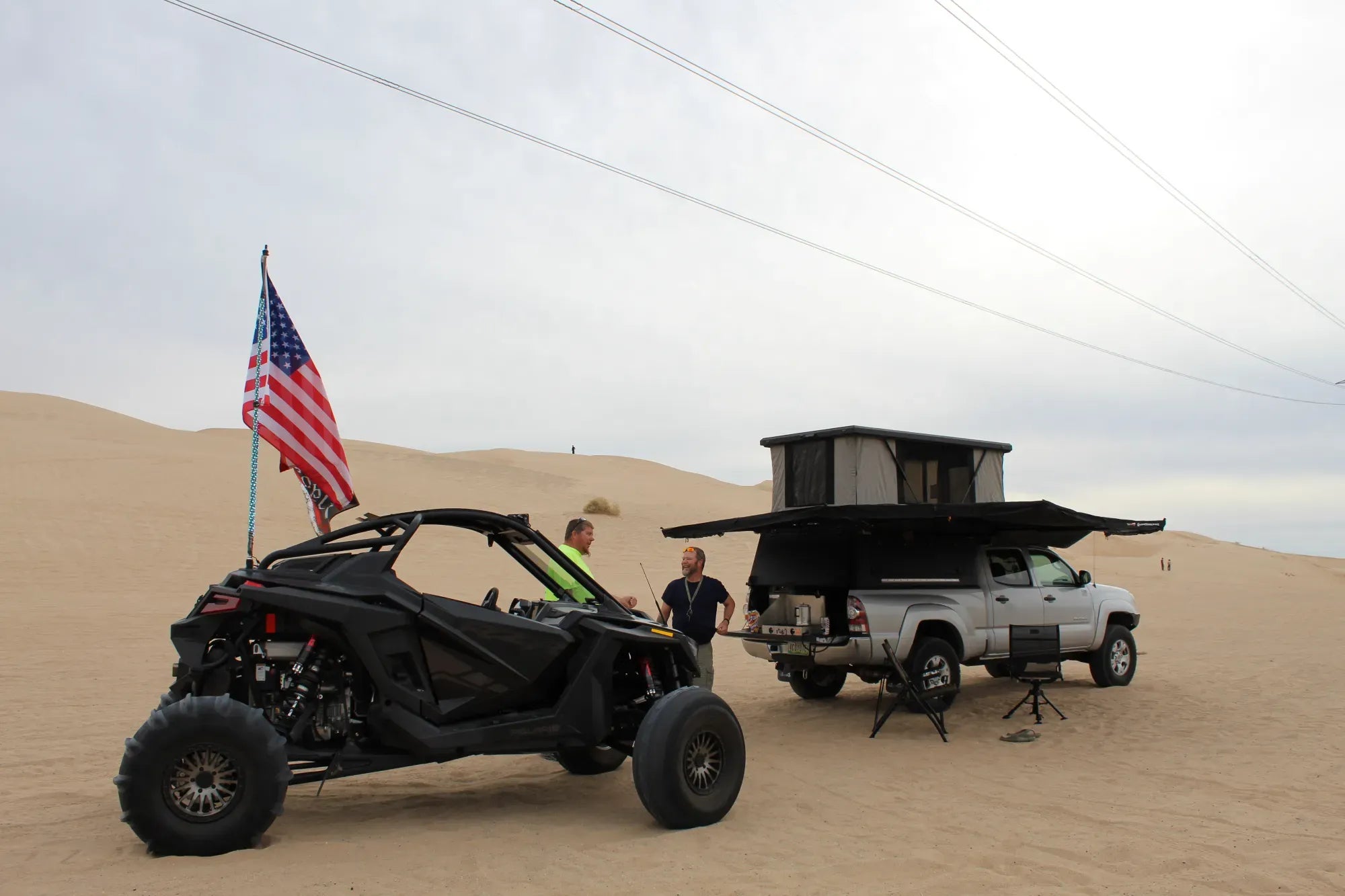Introduction
A cold weather truck camper is the ultimate solution for campers who refuse to let winter stop their adventures. Truck campers are compact, versatile, and much easier to keep warm than a tent or full-size RV. With the right setup, you can stay comfortable in sub-freezing temperatures while still enjoying backcountry roads, snow-covered forests, and quiet winter landscapes.
At Muddy River, we know camping doesn’t end when the snow starts falling. That’s why we created this in-depth guide to help you outfit your truck camper — or lightweight options like the Tacoma camper topper or Eddy camper — for cold-weather use.
Also Read:
The Ultimate Guide to 4x4 Camper Shells
TL;DR
A cold weather truck camper lets you extend camping into winter without sacrificing comfort. With insulation, heating, ventilation, and truck prep, you can turn your rig into a warm basecamp. Whether you’re upgrading a Tacoma camper topper for simplicity or an Eddy camper for four-season use, these strategies keep you safe, warm, and ready for adventure.
Key Takeaways:
- Choose a camper with insulation, heated tanks, and strong seals.
- Use propane or diesel heaters, plus backup heat sources.
- Manage condensation with ventilation and moisture control.
- Upgrade toppers with thermal curtains, insulated floors, and heaters.
- Pack winter survival gear and prepare your truck for snow.
What Makes a Camper “Cold Weather Ready”?
Not every camper is built for winter. To qualify as a cold weather truck camper, look for these features:
- Insulation – High R-value walls, roof, and flooring help trap heat.
- Double-pane windows – Reduce heat loss and condensation.
- Heated tanks & plumbing – Keep water systems from freezing.
- Sealed underbelly – Protects pipes and wiring from cold air.
- Powerful furnace – A propane or diesel system to provide steady heat.
- Ventilation & airflow – Essential for reducing condensation and maintaining air quality.

Top Features to Look for in a Cold Weather Truck Camper
If you’re shopping or upgrading, these are the must-have features:
Heating Systems
- Propane furnaces: Reliable, easy to refuel.
- Diesel heaters: Fuel-efficient, long run times.
- Portable heaters: Great for smaller toppers, but always use with ventilation.
Insulation & Construction
- Look for R-7 or higher insulation values in premium campers.
- Toppers like the Eddy camper can be upgraded with Reflectix, foam boards, or thermal packs.
Tank & Plumbing Heating
- Heated tanks and pipe wraps prevent frozen systems.
- For topper setups without plumbing, this isn’t needed — one less thing to worry about.
Energy & Power Options
- Solar panels mounted on a camper topper can recharge batteries for lights and heaters.
- Dual-battery setups extend runtime in remote areas.
Ventilation & Condensation Control
- Roof vents with fans keep air moving.
- Portable dehumidifiers reduce frost buildup inside.
Best Truck Campers for Cold Weather
Here are some of the best cold weather truck camper options:
- Lance 850 – Excellent insulation, all-season build, fits many trucks.
- Arctic Fox 811 – One of the most rugged four-season campers on the market.
- Four Wheel Campers (with thermal pack) – Lightweight but winter-adaptable.
- Eddy Camper – A minimalist topper with custom options for insulation and heating.
Cold Weather Truck Camper Tips for Winter Success
Even the best camper won’t perform without good practices. Here are essential tips:
- Insulate windows & vents – Use Reflectix, thermal curtains, or foam boards.
- Add skirting – Foam board or vinyl skirts around your truck prevent cold air from seeping in.
- Layer your bedding – Heated blankets, winter sleeping bags, and foam pads.
- Control condensation – Ventilate at night, use moisture absorbers.
- Prep your truck – Winter tires, engine block heater, emergency recovery gear.
- Backup heat – Always carry a second heating option in case your furnace fails.
Safety Considerations for Winter Truck Camping
Safety should always come first in freezing weather:
- Carbon Monoxide – Always ventilate when using propane or diesel heaters.
- Emergency Supplies – Food, water, traction boards, shovel, and a first-aid kit.
- Fuel & Power Management – Carry extra propane or diesel, keep batteries charged.
- Weather Awareness – Monitor forecasts and avoid dangerous storms.

Top 3 Benefits of a Cold Weather Truck Camper
1. Smaller Spaces Heat Faster
Unlike big RVs, truck campers and toppers stay warm with less energy.
2. Mobility in Snow
Easier to maneuver and park compared to trailers or motorhomes.
3. Cost-Effective Winter Camping
A topper like the Eddy camper costs less to winterize than a large rig, while still keeping you warm.
Conclusion
With preparation, a cold weather truck camper can transform winter from a camping obstacle into an opportunity. From professional four-season campers to minimalist builds like the Tacoma camper topper or Eddy camper, you have options to fit your style, budget, and truck setup.
The right insulation, safe heating, and smart planning ensure you stay warm, dry, and safe no matter how low the temperature drops.
👉 Ready to take your camping year-round? Learn more about the Eddy camper or get to know us better through Our Story.




Leave a comment
This site is protected by hCaptcha and the hCaptcha Privacy Policy and Terms of Service apply.